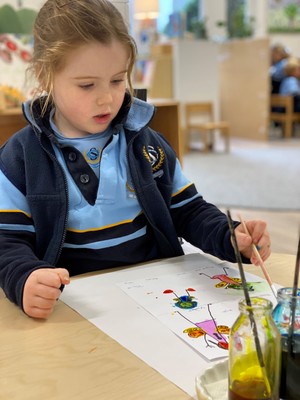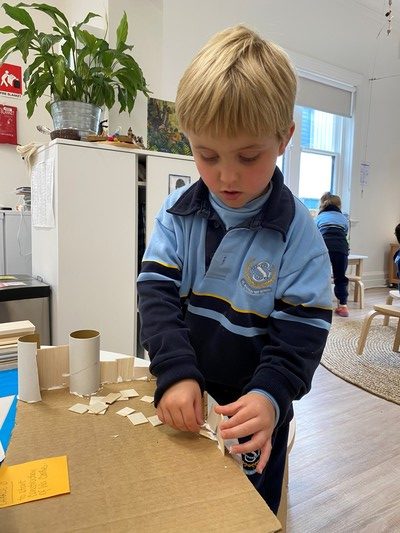Editorial written by – Ms Sarah Bethune, Head of Early Learning Centre, St Catherine’s School Toorak
Children with a strong sense of self-worth feel competent to manage the basic challenges of life and feel worthy of success and happiness.
It is for these reasons that a child’s learning must be underpinned by positive self-esteem and a sense of self-confidence.
“Self-esteem is feeling good about yourself. Good self-esteem helps children try new things, take healthy risks and solve problems. It gives them a solid foundation for their learning and development.” Raising Children Network, 2017
For children, self-esteem comes from knowing that they belong to a family and a community that values them.
It is important that they are connected to people as this provides them with a sense of place.
Additionally, it offers them the opportunity to relate to others. A child’s self-esteem can be nurtured through their relationships.
Developing the child’s self-confidence and self-esteem
Educators work towards encouraging the children to have a go and try new experiences, and by celebrating their successes.
We believe that the children are competent and capable, and therefore provide them with the scope to become independent, have their own experiences, think for themselves, take considered risks and make their own decisions.
These dispositions can also be promoted at home, and their confidence will begin to grow.
Developing a positive attitude to learning and thinking
It is important to support children and encourage them to develop a ‘can do’ attitude where they are willing to have a go and try new experiences.
This is how they learn. Participation is about effort, persistence and improvement.
Persistence will assist them to develop ideas about their own capabilities while creating a strong self-concept. It is also valuable for children to celebrate the experience purely for the enjoyment that it offers.
Coping with upset and disappointment
For young children, it is essential that they develop strategies to cope with the challenges which are part of life.
Educators and parents can encourage the children to think about other ways of doing things or support them to try again.
The children begin to understand that their upsets and disappointments can be used as a learning opportunity.
This positive mindset assists to build up the child’s confidence and develops resilience.
Acknowledging and celebrating the children’s achievements
This can be achieved by recognising the effort and determination that they have put into a particular task or learning a new skill.
The positive feedback supports the child to feel good about themselves.
It is also valuable to acknowledge qualities such as kindness, tolerance and empathy as this reinforces to the child how important such character traits are.
The importance of self-esteem cannot be underestimated.
It affects a child’s behaviour and their thoughts.
It changes how you feel about yourself and affects your confidence.
If we want to build happy and successful young learners then we must first start with their self-esteem as this sets the foundation for a lifetime of successful learning.









